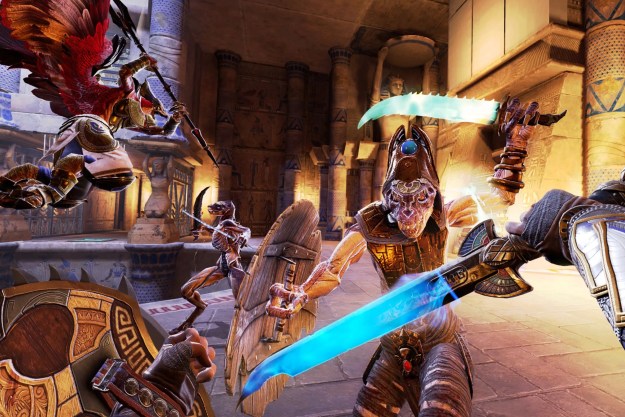The rumors were true: Facebook — or, Meta, rather — is going all-in on the metaverse. The social media giant announced that it is undergoing a massive rebrand as it chases a concept that seemed like total science-fiction just a few years ago.
So, what is the metaverse? It depends on who you ask. The most basic explanation is that its series of shared digital spaces that goes a few steps beyond the current internet. It’s theoretically a place where you could live a whole digital life. That could mean that you have your own digital avatar who spends a form of virtual currency on digital goods. We’ve already seen bits and pieces of that emerging over the past few years especially, but Meta is looking to accelerate the process.
There’s only one problem: It’s already too late to the game. Sketches of the
The metaverse race
For those familiar with the gaming world, the
The mega-hit multiplayer game is essentially a proving ground for the

Fortnite isn’t the entire
Epic Games’ approach to the
It’s important to note that Epic Games isn’t the only company taking this approach. Mega-hit Roblox has evolved from a game that kids like to a full-on global platform that’s beyond most people’s grasp. I can’t begin to break down the kind of things happening in that space these days, but it’s already lightyears ahead of Meta.
There’s a key takeaway here, one that is going to be Meta’s Achilles heel: The path to the

And Facebook is not cool. The Verge reports that the social media platform has been bleeding teenagers for years. It is expected to lose 45% of its teenage audience over the next few years as its current users age without younger ones coming in. That’s a huge problem. Meta desperately needs that tech-savvy audience if its
Meanwhile, Epic Games has already normalized that idea within its youngest players. And more importantly, it made the whole idea look cool by bringing popular IPs like Batman, Star Wars, and Halo into Fortnite — and let’s face it, Master Chief is cooler than Mark Zuckerberg. For those who have grown up on the game, there’s nothing weird about spending V-Bucks so they can make their character look like Kratos or LeBron James. In fact, they find it fun.
Meta is late to a marathon it is claiming just began. Epic Games, and others in the video game world, already have giant audiences that are primed and ready for the future. Meta will need to run twice as fast to catch up.
Editors' Recommendations
- Before you play Homeworld 3, try this VR game as a primer
- Don’t miss this great sci-fi RPG while it’s free on the Epic Games Store
- Watching Invincible Season 2? Pick up this free game on the Epic Games Store
- Fortnite is getting a Disney universe made by Epic Games
- Fortnite is coming back to iOS, but Epic Games still isn’t happy about it



